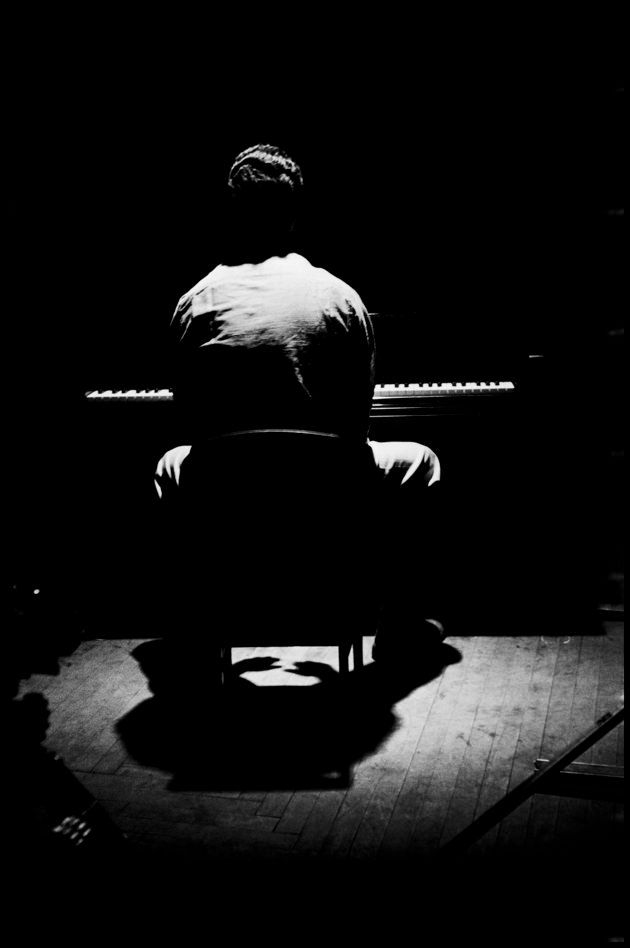One of the sorrows of our modern age is that so much of the life one knew in one’s youth has completely disappeared, or is on the verge of disappearing. It wasn’t always like that. For most of human history, one could count on one’s favorite dishes and songs still being around when one became old. Not anymore. One evening recently, thinking about this melancholy subject, I was wondering, for example, what happened to the delicious Manhattan clam chowder that was once on the menu in every restaurant and corner luncheonette in the city, when my mind drifted—first to different neighborhoods in New York where I lived, then to small piano bars, now nearly extinct, where I spent many an evening drinking and listening to music.
Jazz clubs tend to be crowded and noisy, but a small place with a piano player, either solo or accompanied by a bass, makes for the best listening. Large midtown hotels like the Algonquin used to have bars and lounges with pianos, but what I have in mind are neighborhood dives in the Village with no more than a dozen tables where one could drop in late, stay for a set and go home to bed. Over the years, I heard Mary Lou Williams, Tommy Flanagan, Art Hodes, Ralph Sutton, Dick Wellstood, Junior Mance, Hank Jones, Sammy Price, Dave McKenna, Thelonius Monk and many other famous piano players, but an even greater number of anonymous ones who most likely never made a record, and who may have had a regular job during the day. I would be returning home, when at the spur of the moment, not quite ready yet to hit the sack, I would go in. On weekends and in the summer, these places may have been packed, but on a dark and dreary weekday night, one could get a table right next to the piano.
What made it all possible is that there was a repertory of popular songs and jazz tunes going back to the early years of the twentieth century that most Americans were familiar with and enjoyed hearing. In this setting, they were played in a variety of piano styles, in a more or less predictable fashion—emphasizing the melody, and allowing for passages of jazz improvisation. At times, however, a piano player stood out. His playing was subtle, deeply thought-out and original enough to chase away most customers and leave a few appreciative ones to linger till closing time.
In my youth, I was usually too shy to tell them how much I liked their playing, or God-forbid make a request, since, as a rule, they were wary of customers. The tipsy ones were liable to interrupt their playing and ask them for directions to the bathroom, or even worse, ask them to play “Melancholy Baby” for the fifth time that evening. I once heard a red-faced drunk, who was sitting with a young woman who appeared to be sobbing quietly, go up to Ray Bryant and shout: “Hey fellow! How about piping down; you are giving me a goddamn headache.” Consequently, if you summoned the courage to make a request, it better have been for some tune that told them that you were not just another know-nothing idiot. Some of them would nod silently, while others pretended they didn’t hear you, and then play your request an hour later. Of course, it was best to ask them to play the blues, any blues, since that’s the mood they were usually in at the end of a long evening with only a few dollars and some small change in the jar reserved for tips that they kept on the piano.
I once asked an old, tired-looking black man to play James P. Johnson’s “Snowy Morning Blues” and he obliged after first turning around to take a better look at me. That tune was written in New York in 1920s and recorded a couple of times by Johnson himself and a few others. Its name already sets up a scene in one’s imagination. Someone has woken late, drawn open the curtains and found the rooftops and streets covered with snow. It must be a Sunday, because the tune evokes the melancholy and the quiet joy of someone lounging around, reminiscing about the night before. That mixture of emotions is the quality of all the best pop and jazz tunes. If they were only sad, or only happy, they would grow tiresome after a while. Was it Al Capone who expressed the opinion that jazz was better than opera, because it didn’t just go around slobbering?
There are tunes like “Autumn in New York” that obviously evoke the city, but there was also a piano sound, I thought, that one heard only in New York. I don’t mean that the players touched the piano keys any differently than they did in San Francisco. It was the atmosphere of the city with its dark, rain-slicked streets that made it seem so to the listener. These are the hours when one wishes to hear a tune like “Softly as in a Morning Sunrise”, played slowly and soulfully. Both jazz piano and lyric poetry depend on an exquisite sense of timing and phrasing that require one to omit every unnecessary note and word. But poetry can be read later in a book, whereas sublime moments in a club remain only a memory. The piano player stops playing and gets up. We applaud. He mumbles a thank you and hurries to put on his hat, overcoat, and find his umbrella. Everyone is tired after a long day and ready to go home, but there’s always someone who wants to hear one more song. I remember one piano player telling us, after we asked him to play one more: “I’m an old man, folks, and it’s past my bedtime.” Then of course, he sat back at the piano and played us a slow, heart-breaking old blues.
Advertisement



